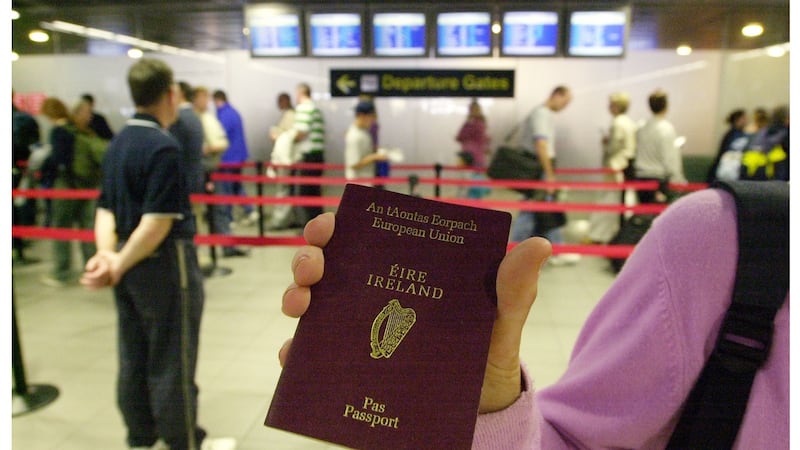The DUP leader has said that any solution to the issues around the Northern Ireland protocol "needs to go further" than the removal of customs checks.
"I don't think that just simply stopping particular checks means that the concept of the Irish Sea Border is removed," Jeffrey Donaldson said.
Answering questions following a virtual address to the Dublin-based foreign policy think tank the Institute of International and European Affairs (IIEA) on Thursday, Mr Donaldson indicated that removing the need for checks and paperwork for goods arriving from Britain which were to remain in Northern Ireland was key if an agreement was to be reached.
“We need to look at goods that are exempt completely from the EU’s arrangements because they are not entering the EU’s single market and they are staying with the UK internal market,” he said.
“That is why I think we need to devise systems that negate the need for goods moving within and staying within the UK internal market to meet these requirements for additional paperwork, never mind the checks on the Irish Sea.”
Deadlock
Talks between the UK and EU aimed at resolving issues around the post-Brexit protocol have so far failed to yield a solution. The two sides remain some distance from a possible solution despite issuing a joint statement on Monday emphasising their “ongoing determination” to break the deadlock.
Mr Donaldson's party colleague, Paul Givan, earlier this month resigned as the North's First Minister as part of the DUP's campaign against the protocol, triggering a political crisis at Stormont.
Unionists are opposed to the protocol - the part of the Brexit withdrawal agreement which avoided a hard Border on the island of Ireland by placing a customs and regulatory border in the Irish Sea - because they argue it is causing economic difficulties and undermines Northern Ireland’s constitutional position as part of the UK.
Mr Donaldson has already indicated that the political instability in Northern Ireland could be prolonged, saying it would be “difficult” for his party to go back into government after an election if the issues around the protocol remain.
In his address to the IIEA, the Lagan Valley MP rejected the suggestion that the protocol delivered the “best of both worlds” for Northern Ireland and claimed that “just this week an EU spokesperson spoke of the need to police the movement of children’s toys into Northern Ireland”.
‘Major effect’
He also described a constituent with a disability-adapted motor vehicle who he said was now housebound because she could not buy a component part needed for essential repairs from a supplier in Britain.
“That’s just one small impact having a major effect on the life of one of my constituents.”
Mr Donaldson also said the “decision by the EU to dismiss concerns and not, so far, to reach an agreement with the UK means that the political institutions in Northern Ireland and the economy are being destabilised on a daily basis.
“It has alienated unionists, it has left unionists feeling that they are significantly disadvantaged by this protocol, that their rights have been diminished, that their constitutional status within the rest of the UK has been altered without their consent and in those circumstances and in the absence of a consensus on the way forward then this has an impact on political stability here,” he added.
















